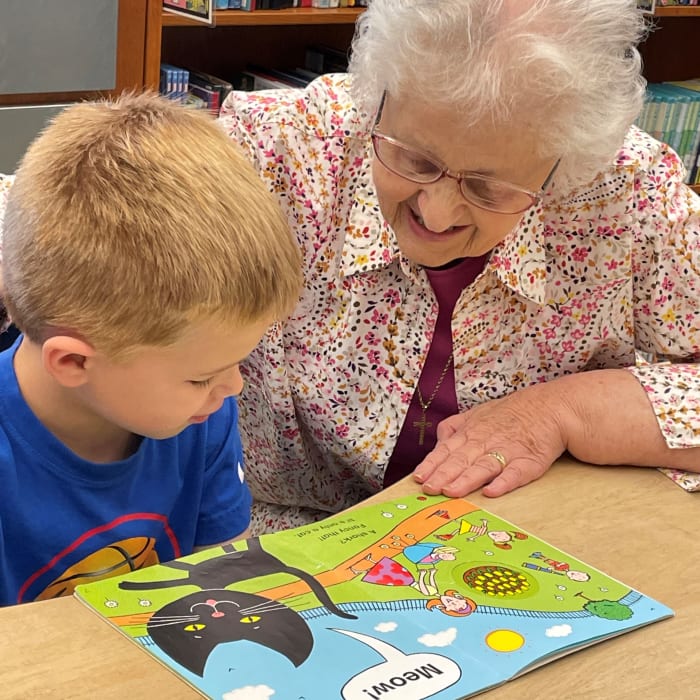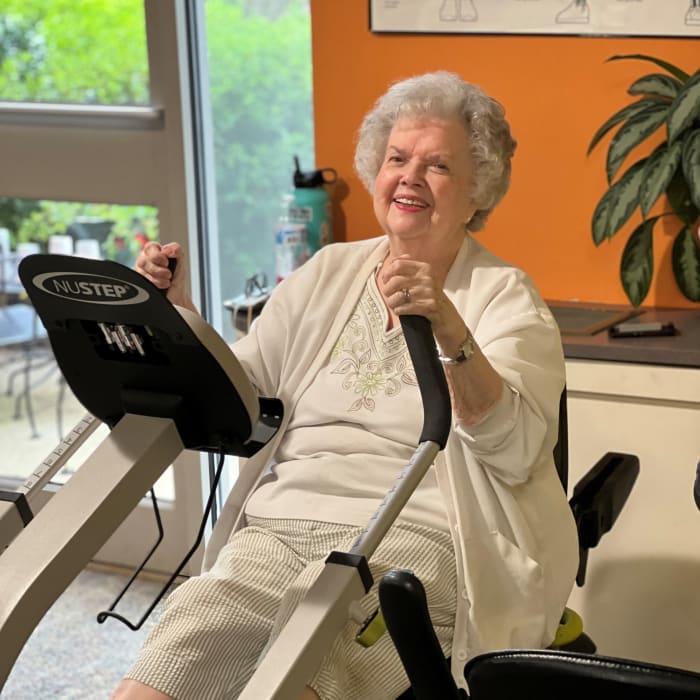Coping with dementia during COVID-19
Being a caregiver for someone living with dementia is a demanding role, and now it’s even more difficult with the challenges and risks of COVID-19. Your loved one may experience confusion or anxiety about changes to their daily routine, and it’s important to work together with their care team to provide a safe and supportive environment.
If you’re taking care of someone with dementia in their own home, you may face challenges keeping the person safe at home as the disease progresses. If you’re a caregiver for someone who lives in a retirement community or assisted living facility, you want peace of mind knowing the level of care can be adjusted as needed to include memory care services.
Dementia care and support
As a caregiver, it’s important to take steps to protect yourself and your loved one due to the additional challenges of COVID-19. The following tips can help you stay safe while staying connected with your loved one:
• Follow guidelines for social distancing, wearing masks and frequent handwashing.
• If you notice any changes in your loved one’s health or behavior, notify their health care provider or care team right away.
• Stay informed about visitation policies if your loved one is in a senior living community.
• Maintain structure by establishing simple routines with your loved one that can be repeated every day or every week.
• Help your loved one stay mentally and socially connected with others, even when it’s challenging. When in-person visits are limited, phone calls and window visits provide a chance to connect with family and friends. Be physically distant, not socially distant.
• Encourage healthy habits to help calm your loved one. A daily walk together or a simple home exercise routine can help.
• Focus on past experiences. Trying to keep up with changes happening due to COVID-19 can be overwhelming for someone with dementia. When they’re feeling frustrated or confused, try to engage in conversations about the past that provide a sense of comfort and familiarity.
• Stay positive. Your voice, body language and mood can help keep the interaction between you and your loved one upbeat and loving.
• Take care of yourself and get all the support you can. Ask about resources such as counselors, caregiver support groups, home health aides and respite care options.
Explore memory care options
Having a plan in place can help you and your loved one stay safe and maintain quality of life. To learn more about memory care and other resources available through Presbyterian Communities of South Carolina, visit us at www.prescommunities.org.
Resources:
1. CDC. Additional COVID-19 Guidance for Caregivers of People Living with Dementia in Community Settings. May 19, 2020. Available at: https://www.cdc.gov/coronavirus/2019-ncov/need-extra-precautions/caregivers-dementia.html






